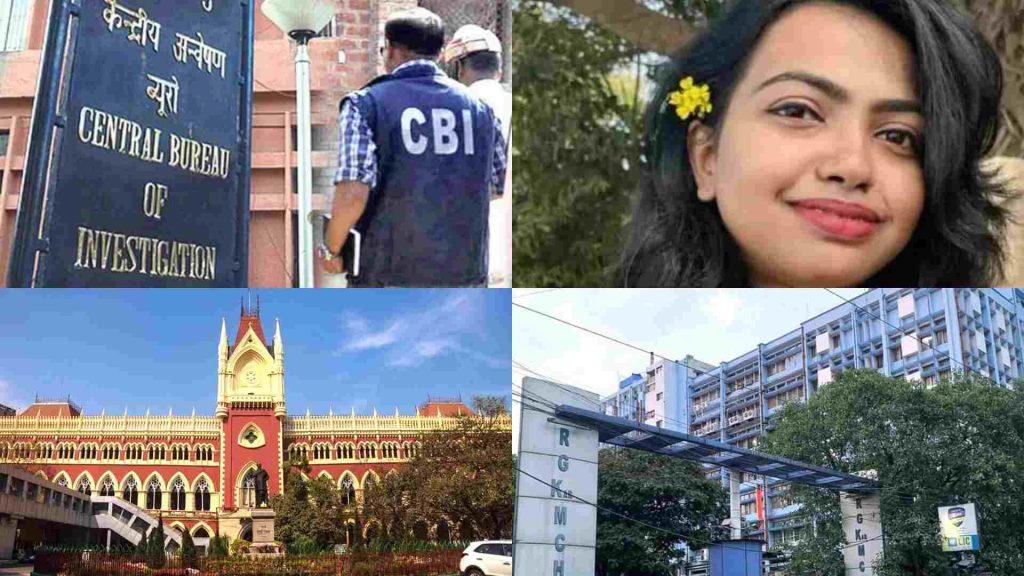The Calcutta High Court has ordered the immediate transfer of the investigation into the rape and murder of a 31-year-old doctor at a state-run hospital to the Central Bureau of Investigation (CBI). This directive comes ahead of a deadline set by West Bengal Chief Minister Mamata Banerjee for the Kolkata Police to complete their investigation. Banerjee had previously stated that if the probe was not concluded by Sunday, the state government would recommend a CBI investigation.
The court’s intervention is notable as it is rare for a case to be transferred to the central agency during the initial hearing. Chief Justice TS Sivagnanam, presiding over the bench, expressed concerns about the lack of significant progress in the investigation and the potential for evidence destruction. The court also criticized the hospital administration, particularly the former Principal Dr. Sandip Ghosh, whose handling of the situation has drawn criticism.
Court’s Rationale for Transfer
The court’s decision to transfer the case was influenced by multiple public interest litigations that had been filed, requesting the handover of the investigation to the CBI or another independent agency. Petitioners included the victim’s parents and BJP leader Suvendu Adhikari. The court acknowledged claims by the petitioners of injuries on the victim’s body and noted that Chief Minister Banerjee had expressed willingness for the probe to be transferred to the CBI. The petitioners also sought protection for themselves and witnesses to prevent evidence tampering.
The court referenced previous Supreme Court decisions, emphasizing that transferring an investigation to an independent agency like the CBI is warranted in exceptional cases where public confidence in the state investigation is at risk. Factors such as lack of credibility and the need for a thorough and impartial investigation were key considerations.
Details of the Incident and Administrative Response
The victim’s parents reported that their daughter had been in good spirits during a conversation with them shortly before her death. They were informed of her alleged suicide under suspicious circumstances and faced delays in accessing her body. This delay, the petitioners argue, was intentional and contributed to the chaotic situation that required intervention from the Rapid Action Force.
The state government’s counsel countered these claims, stating that the local police and hospital administration responded promptly. The state asserted that the victim’s body could not be moved immediately due to the ongoing agitation, which necessitated a delay in the post-mortem examination.
Criticism of Hospital Administration
The court criticized Dr. Sandip Ghosh for his handling of the situation, describing it as a “clear dereliction of duty.” The court condemned Ghosh’s swift reinstatement as Principal of another medical college, questioning the urgency and appropriateness of his new appointment. The court has now instructed Ghosh to take immediate leave and barred him from holding any principal post until further orders.
Public and Professional Reactions
The court highlighted the need to restore public confidence through a fair investigation, given the widespread protests and public outcry. The high court’s order emphasizes the importance of maintaining trust in the investigative process and the impartiality of state agencies.
The court also addressed the protests by doctors and medical students, urging them to consider the impact of their actions on patients and to engage in discussions with state officials to resolve the situation.
Conclusion
The Calcutta High Court’s decision to transfer the investigation to the CBI underscores the gravity of the case and the need for a transparent and unbiased inquiry. The court’s actions reflect its commitment to upholding public trust and ensuring that justice is served in this highly sensitive matter.



